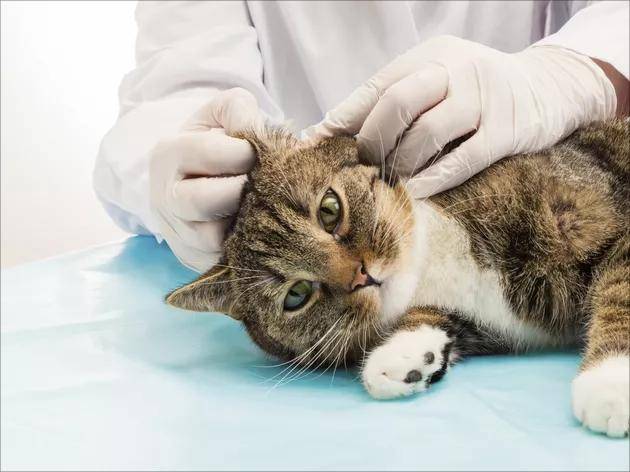Ear mites, also known as ear mites, are common parasites that mainly live in the ears of cats and dogs and feed on skin debris. It can irritate your cat’s ears, which in turn can cause ear infections and inflammation, which can harm your ear health. At the same time, it is highly contagious, and kittens with low resistance are especially susceptible to infection.
Main symptoms of cat ear mites
It is actually very easy to determine whether a cat has ear mites. Most cats frequently scratch their ears because of the severe itching caused by the bite of ear mites. Once a cat is found scratching its ears, we must pay attention to check its ears Well, maybe it’s ear mites at work.

The ear canal of a healthy cat is relatively clean and has no peculiar smell, while a cat with ear mites will accumulate a large amount of black-brown cinder-like earwax in the ear canal, giving off an unpleasant odor, which is actually the excrement of ear mites.
Not only that, ear mites can also induce ear inflammation, redness and pain, and ear hair loss. Some cats are very resistant to their owners touching their ears. This is also the reason.
How to deal with ear mites?
To deal with cat ear mites, you need to prepare two kinds of medicines, one is ear drops to clean the ears and relieve otitis, and the other is external deworming medicine for pets. For ear drops, you can try this Pointe ear drop, which is very effective for ear mite otitis. In vitro anthelmintics can be in the form of drops, which are more convenient to use and can be dropped into the skin of the back of the cat’s neck.
Note that it is best to put an Elizabethan ring on the cat after deworming, which can prevent the cat from accidentally licking the deworming drug; do not bathe the cat within a few days after deworming to avoid affecting the absorption of the drug solution.
Ways to prevent ear mites
First of all, the monthly in vitro deworming cannot fall. Although cats rarely go out, they are still at risk of contracting parasites. If they are not dewormed in time, they are vulnerable to parasites including ear mites.
Secondly, the shovel officer can regularly clean and care for the cat’s ears. Proper ear cleaning can keep the ear canal clean and odor-free and less prone to bacterial mites infection.
Finally, indoor cleaning and disinfection should be done well to keep the environment clean and hygienic. In this way, bacteria and parasites are not easy to find cats